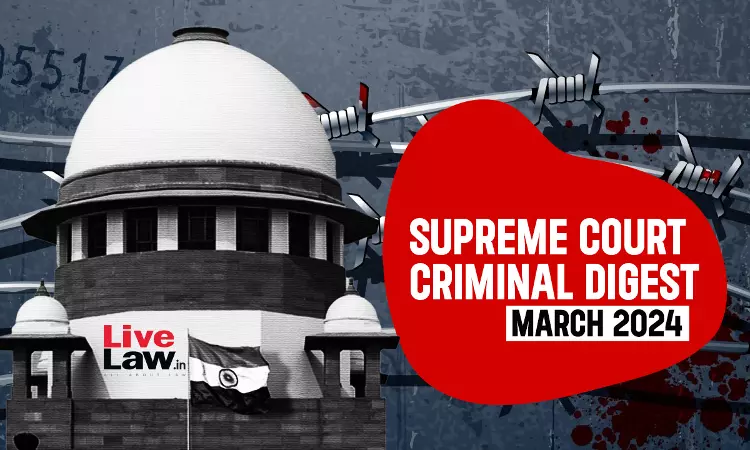- Home
- /
- Supreme court
- /
- Supreme Court Criminal Digest...
Supreme Court Criminal Digest -March 2024
LIVELAW NEWS NETWORK
2 May 2024 10:03 AM IST
Anticipatory Bail Custodial interrogation is one of the effective modes of investigating into the alleged crime. It is equally true that just because custodial interrogation is not required that by itself may also not be a ground to release an accused on anticipatory bail if the offences are of a serious nature. However, a mere assertion on the part of the State while opposing the...
Next Story



